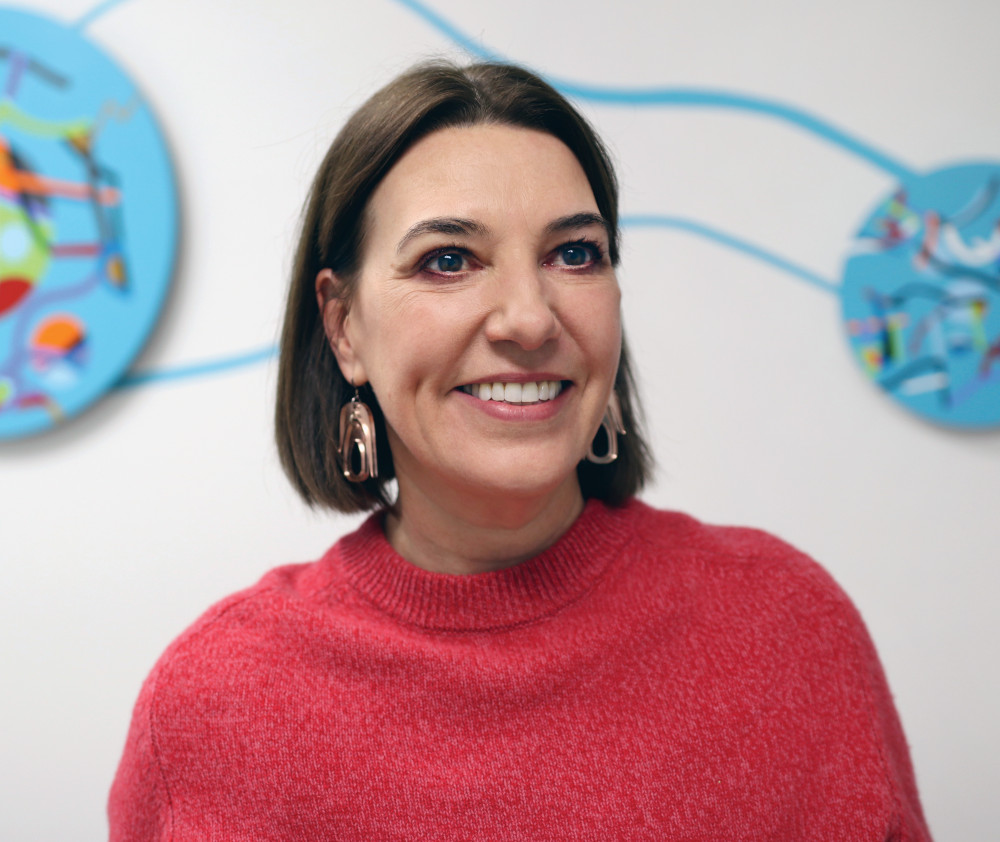Imagine being 10 years old, watching family members and neighbours all around you coping with the same disease, and dreading being diagnosed with it yourself.

“In First Nations communities, Type 2 diabetes is an intergenerational disease,” says Brandy Wicklow [B.Sc.(Med.)/03, MD/03], associate professor of pediatrics and child health and researcher with the Children’s Hospital Research Institute of Manitoba.
The effects of colonization set the cycle in motion, Wicklow says, and many Anishininew people of the Island Lake area carry a gene variant that puts them at increased risk.
“The kids bear witness to what diabetes does in their communities,” Wicklow says. “They may have a grandmother on dialysis or a parent who’s had an amputation because of complications.
“Our research shows that these kids live with a chronic level of distress. If they’re diagnosed themselves – often around the time of puberty – they experience fear, shame and stigma.”
Wicklow, who was born and raised in Winnipeg, is a pediatric endocrinologist – an expert on hormones in children. She is fiercely committed to caring for underserved kids and teens in northern Manitoba communities.
The UM medicine grad, who joined the faculty in 2010, holds a master’s in epidemiology from the London School of Hygiene and Tropical Medicine.
Much of her research has sought ways to halt the intergenerational cycle that contributes to First Nations children in Manitoba having one of the highest rates of pediatric Type 2 diabetes and early kidney disease worldwide. We asked Wicklow three questions.
What’s involved in the five-year study you’re leading on the developmental origins of pediatric Type 2 diabetes?
The project includes lab scientists who are studying, in animal models, how exposure to the mother’s Type 2 diabetes in the womb affects the kidneys and pancreas of the fetus. Another lab team is looking at the role of epigenetic programming in transmitting risk of the disease.
My role is monitoring the health of nearly 400 kids and teens who belong to the Next Generation research cohort. They were born to mothers and fathers who were diagnosed themselves with Type 2 before they were 18.
We follow the kids from before birth and do regular screening to detect abnormal blood sugars. If we intervene at that point, we can prevent diabetic ketoacidosis, which prevents the need for intravenous insulin therapy and hospitalization. We have prevented that outcome for about 30 per cent of kids in the study.
What’s the goal of your project with another youth cohort, aged 10 to 14, who have been diagnosed with the disease?
It’s a 16-week mental health pilot program using dialectical behavioural therapy, or DBT. The goal is to give them skills to increase their tolerance for distress, decrease negative emotions, and help them do the self-care to stay healthy.
We now have funding to add a traditional knowledge arm to this program. When we talked to Elders, they said, “We have done this DBT for centuries. We have done mindfulness for centuries. This is how we used to live.”
Indigenous people have many traditional practices that promote health. We need to marry some of those teachings with the Western approach.
You travel to northern First Nations communities about five times per year as a physician and twice per year as a researcher. What are your priorities on the research trips?
First and foremost, to give back to community, share our recent findings and discuss how they can be used to improve the kids’ care. On both cohort studies, we have local advisory groups who help us improve the study design and interpret the data in the context of people’s lives.
We have had Indigenous moms as research co-authors. The communities are so engaged. We’re partners in looking for the best ways to identify kids who are most at risk, and modify those risk factors.
BY ALISON MAYES
